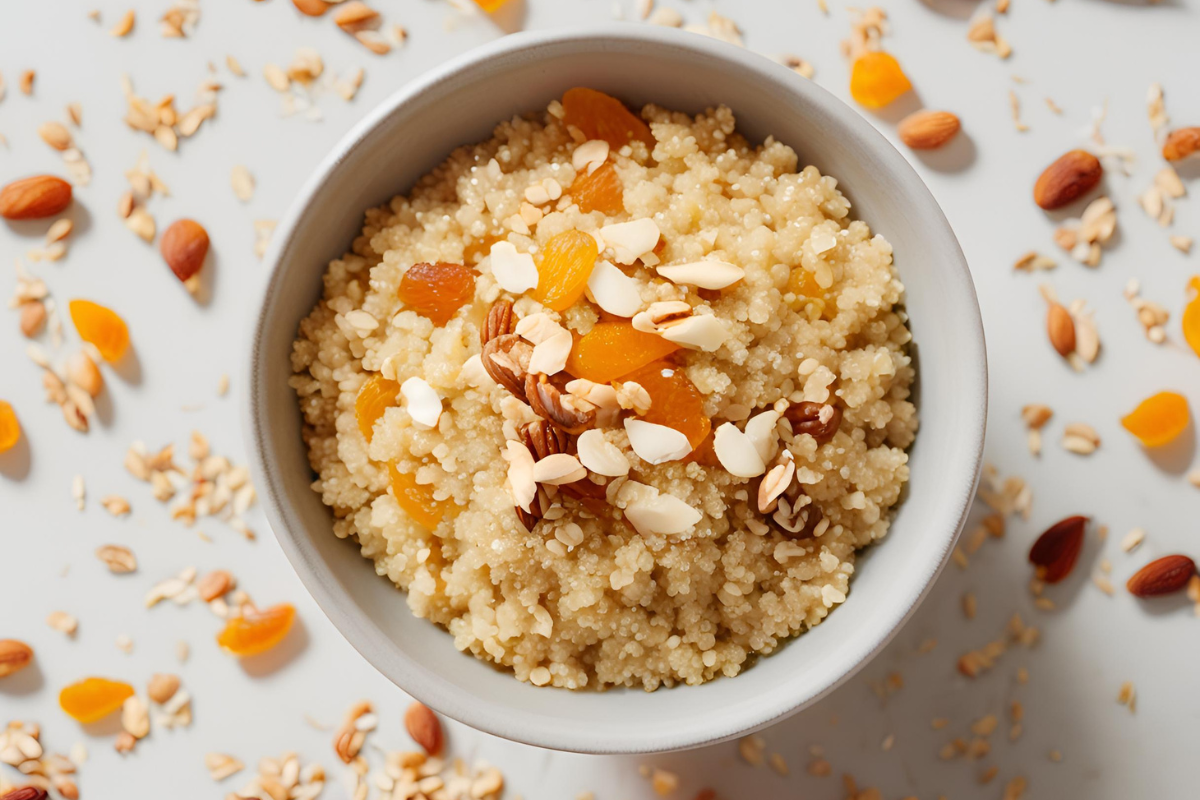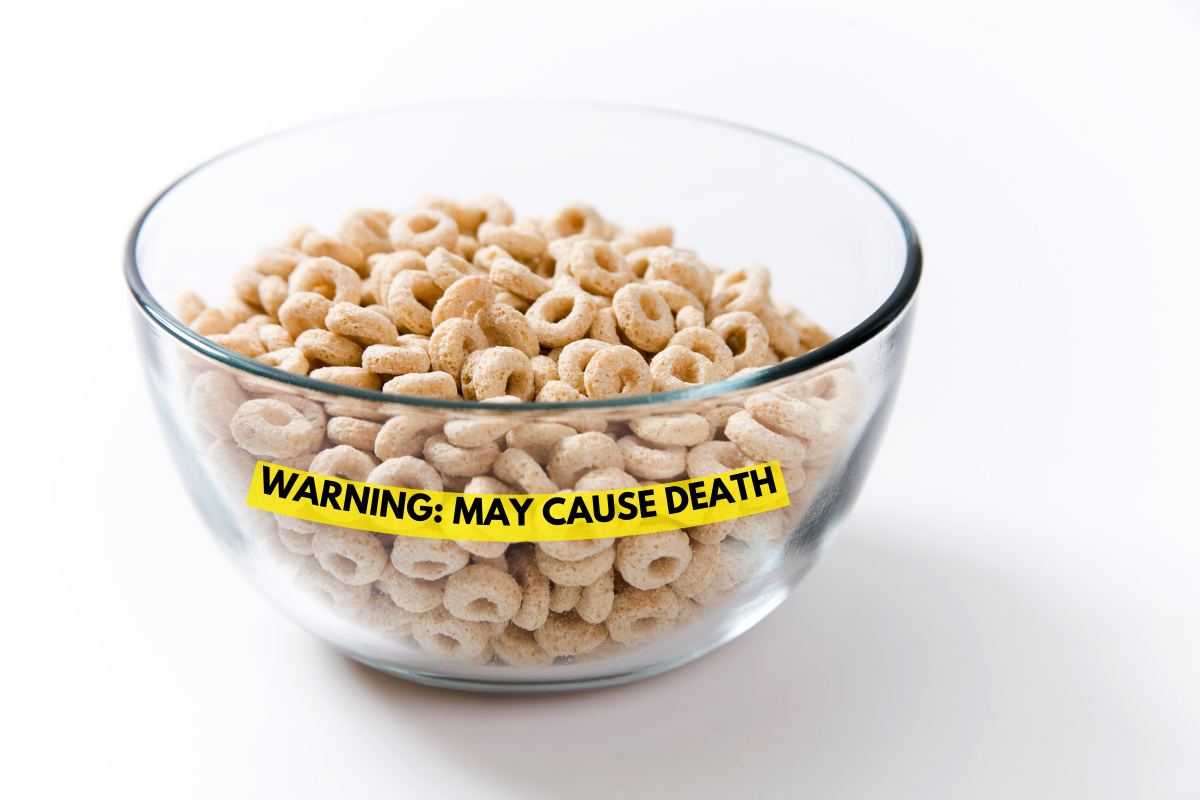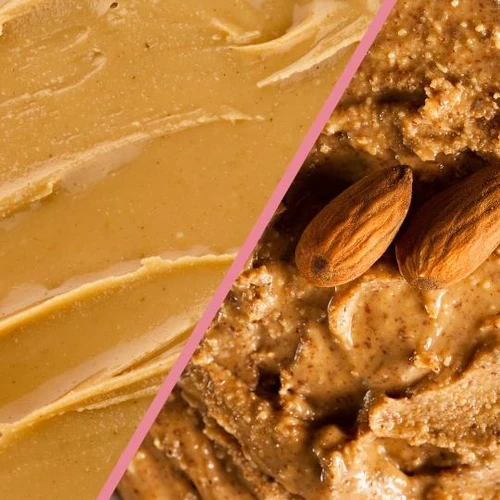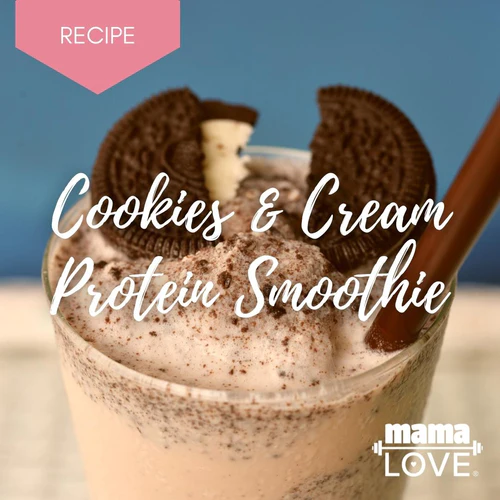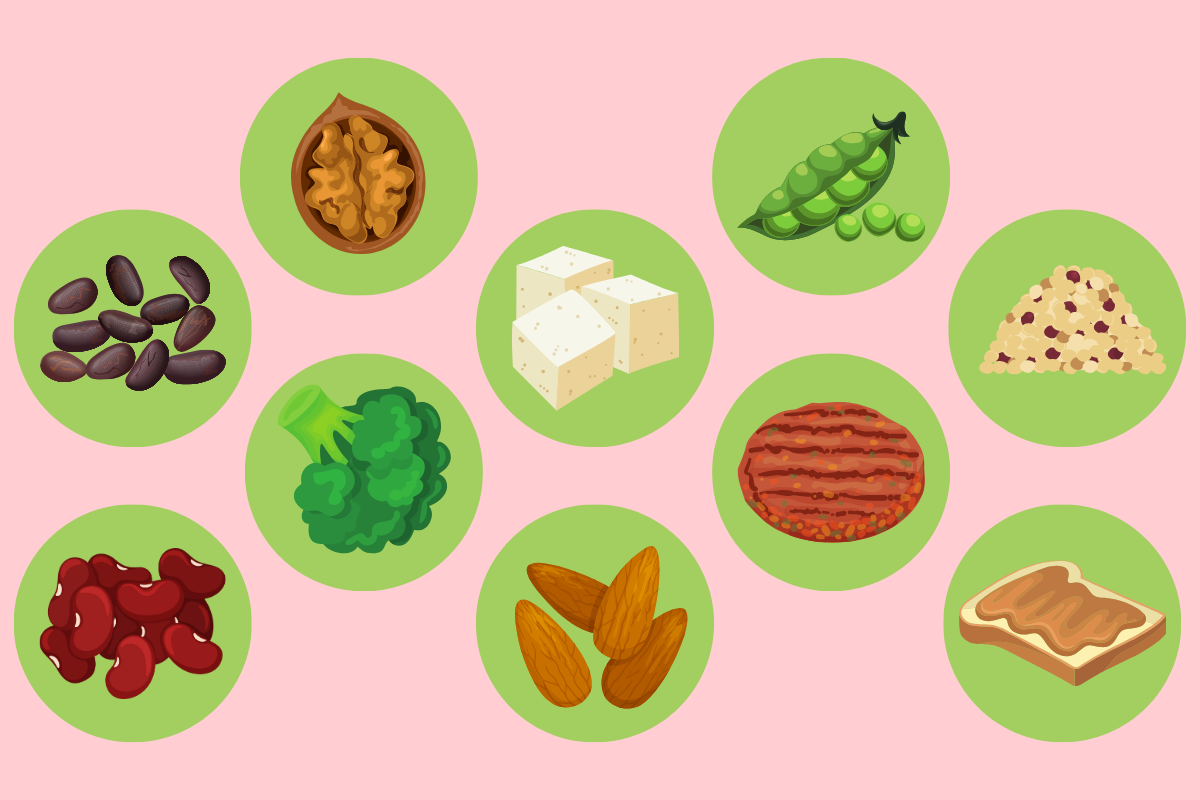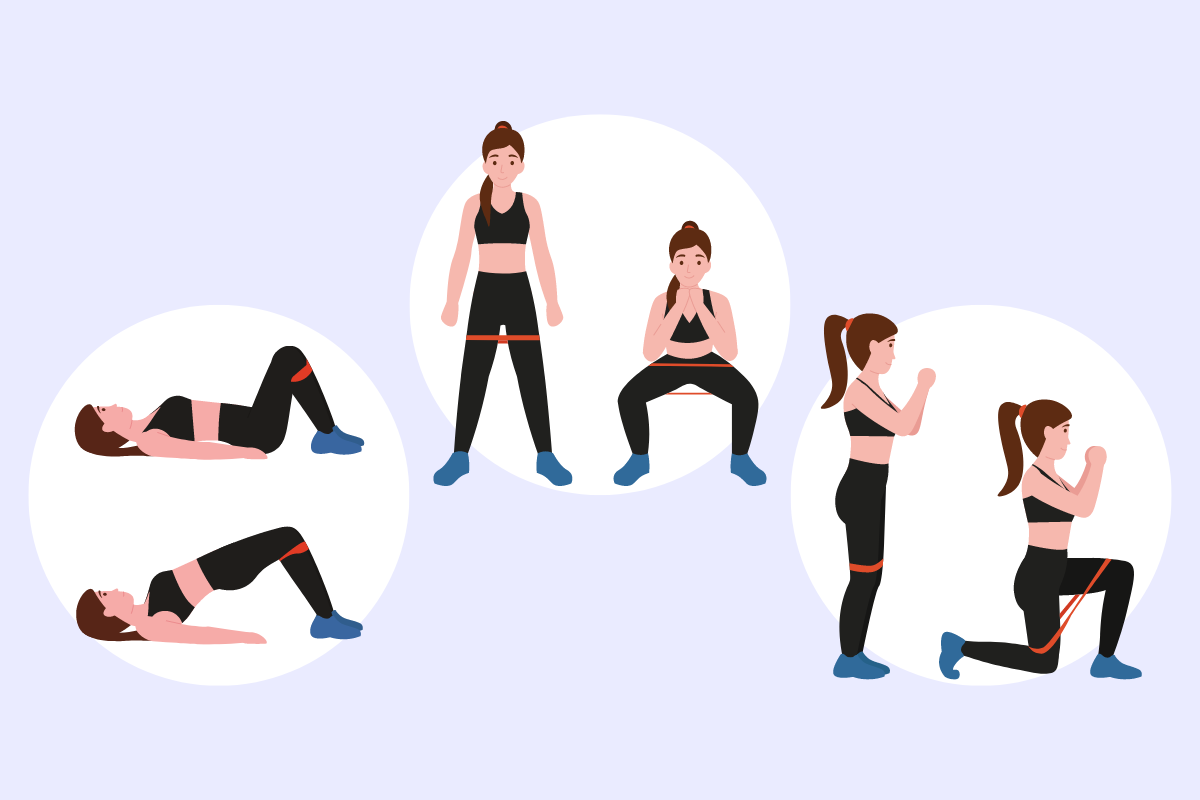
The minute you pop out a baby, it seems like the world is ready for your body to bounce back to its pre-pregnancy shape. Thanks to the algorithms, your feeds are likely to be overflowing with articles and photos of women who make postpartum weight loss look easy. And even the medical community and the government want you to lose that baby weight.
Sure, it seems reasonable for your doctor to bring up weight loss at your first postpartum checkup—she just wants you to be healthy, and being overweight can put unnecessary strain on your body, especially the cardiovascular system. Her concern is driven by research and the many health organizations that recommend mothers return to a healthy weight after pregnancy as quickly as possible.
Just how quickly can it be done? The US government believes you can get back to your pre-pregnancy weight within six months of delivering.
The Dietary Guidelines for Americans, 2020-2025 recommends that a lactating woman increase her calories by an average of 330 calories for months 0 to 6 postpartum, and an average of 400 calories for months 7 to 12 (1). That 330 number accounts for a deficit of 170 calories to promote postpartum weight loss, and 400 calories assumes she’s in a steady state of weight management. (Seriously, six months!?!)
Losing weight postpartum sounds safe and seems relatively doable—without even trying your body is burning a ton of calories to make milk right now. And research shows slow weight loss won’t harm your milk.
A small study published in The New England Journal of Medicine shows overweight women who are actively breastfeeding can lose about 1 pound per week by dieting and exercising, without negatively impacting the growth of their babies (2). Meaning, your milk is still just as nutritious.
Setting a Weight Loss Goal Might Not Be Smart
But weight loss and breastfeeding just don’t mix for a lot of moms. It’s hard to know exactly how many calories to cut, and accidentally cutting too many calories or aiming for a faster rate of weight loss—say, more than 2 lbs. per week, could lead to a decrease in the amount of milk your body produces overtime. Yes, your milk is still nutritious as your excess weight comes off, but a dip in your supply could leave junior unsatisfied after feedings—which means he may need to be topped off with formula.
Obviously, supplementing with formula isn’t terrible. (I chose to give my daughter a bottle of it every day, so I didn’t have to pump as often when I went back to work.) But if your goal is to exclusively breastfeed, having a weight loss goal on top of that might not work out for you.
Even if you’re following a diet or exercise plan perfectly, there are several very big odds stacked against postpartum weight loss for moms, and they’re all related to hormones.
Breastfeeding Hormones Make Weight Loss Hard
For the first six or so months after delivering, your pregnancy and lactation hormones are still in control. The one leading the charge is prolactin.
Prolactin is primarily responsible for milk production, and when there’s a demand for your milk your body will continue to make prolactin at an elevated level. Prolactin can also surge due to stress, low blood sugar (eat something, Mama!), and extreme exercise (3).
In addition to encouraging your body to make milk, prolactin has also been shown to prevent the body from burning calories stored in fat and lower metabolism (4). That’s important when you’re breastfeeding, because it’s your body’s way of ensuring a constant source of glucose and fat to make milk. But it works against you if you’re trying to lose excess weight postpartum.
Waiting to ramp up your postpartum weight loss effort until your little one starts eating solids and breastfeeding less, when prolactin levels naturally decrease, might be a better bet. In fact, a review of research in the International Journal of Obesity shows breastfeeding women who tracked their weight didn’t see it go down until they had been actively breastfeeding for more than six months, and most of the women in the study didn’t lose weight until after twelve months or weaning (5).
Poor Sleep Makes Losing Weight Tough
Sleep is the other big factor. When you don’t get enough shut eye, you turn into a hungry monster—literally, there’s a surge in ghrelin, the hormone that signals hunger, and a dip in leptin, the hormone that signals satiety. Together, ghrelin and leptin cause you to crave food (6). And when you’re tired, you’re not likely to reach for kale (7).
Anyone who’s lost sleep over round-the-clock breastfeeding sessions can tell you those postpartum hunger hormones are no joke! One night I ate an entire box of stale, low-sodium crackers from the back of the panty—I was that desperate. And my sister has a story about sucking down all the apple sauce pouches earmarked for her older daughter’s lunches in a bleary-eyed hunger panic.
Stress Prevents Weight Loss, Too
Another fun little hormone that likes to play with your weight when you’re not getting enough sleep and you’re under a lot of stress is cortisol. And boy, are you under stress as a mom!
Even if you have help, taking care of a new human is confusing, stressful, and hard! Your body responds to stress (any kind of it) by telling the adrenal glands to release the hormones cortisol and adrenaline.
Together, adrenaline and cortisol get your body ready to run away from a bear. Blood rushes to your muscles, digestion is put on hold, and a burst of energy encourages you to take action. When the threat passes both hormones return to their normal, lower levels.
But your baby is not a bear, and the kind of stress you’re dealing with right now is ongoing, so your body never has a chance to recover from that cortisol surge. Levels stay above normal for longer periods and your metabolism remains sluggish. And regardless of whether you are naturally curvy or slender, cortisol causes the body to collect adipose tissue around the abdominal organs (8)—hello, belly fat.
Don’t Make Postpartum Weight Loss the Goal
I’m not telling you all of this so that you’ll give up on the idea of losing any extra weight you may be carrying. I just want you to ease your expectations.
Diet culture is strong in our country (scroll back up to that Dietary Guidelines calorie recommendation for proof!), and it can be sad imagining you’ll never fit into your favorite jeans again. Still, the idea that women should be able to “bounce back” immediately after birth is completely unrealistic, and it can set you up for unnecessary failure.
The reality is all those breastfeeding hormones and nights of lost sleep will be a part of your daily existence until baby’s first birthday. And if you continue to breastfeed past the year mark, prolactin will persist in making weight loss a challenge for you.
Instead of a number on the scale, set your sights on gradual weight loss or a fitness goal you can totally crush in the meantime, like finally doing a pull-up or running your first 10K. That way, postpartum weight loss—if it happens—can be a happy bonus.
Don’t Cut Calories to Lose Postpartum Weight
When it comes to eating, continue to focus on whole, unprocessed foods that hit your macros and are loaded with micros, like fresh fruits, vegetables, and whole grains. Counting calories is helpful for weight loss because you need to burn more than you take in. But since the postpartum period isn’t a great time to cut calories (unless you want your milk supply to tank), you don’t need to worry too much about them.
Practicing intuitive eating, or going on feel, is a better way for you to eat right now. Intuitive eating is all about balance and listening to your body. Your stomach knows when you’ve put too much in it, and your body has built-in hunger cues for a reason.
Instead of worrying about calories or ratios every time you open your mouth, think about how you can hit your nutrition targets over the course of an entire day of eating. Three main meals and a couple of snacks give you flexibility to boost your energy and fuel your breastmilk production all day.
Sources:
- U.S. Department of Agriculture and U.S. Department of Health and Human Services. Dietary Guidelines for Americans, 2020-2025. 9th Edition. December 2020.
- Lovelady, C., et al. “The effect of weight loss in overweight, lactating women on the growth of their infants.” The New England Journal of Medicine. February 2000. Doi:10.1056/NEJM200002173420701
- American Society for Reproductive Medicine. “Hyperprolactinemia (High Prolactin Levels).” 2014. https://www.reproductivefacts.org/globalassets/_rf/news-and-publications/bookletsfact-sheets/english-pdf/hyperprolactinemia_high_prolactin_levels_factsheet.pdf
- Nilsson, L. “Effects of prolactin on metabolism – changes induced by hyperprolactinemia.” University of Gothenburg, Sahlgrenska Academy, Institute of Neuroscience and Physiology. February 2009. http://hdl.handle.net/2077/19049
- Neville, C., McKinley, M., Holmes, V. et al. “The relationship between breastfeeding and postpartum weight change—a systematic review and critical evaluation.” International Journal of Obesity. July 2013. Doi:10.1038/ijo.2013.132
- Chaput, J-P., Tremblay, A. “Adequate sleep to improve the treatment of obesity.” Canadian Medical Association Journal. December 2012. Doi:10.1503/cmaj.120876
- Greer, S M., et al. “The impact of sleep deprivation on food desire in the human brain.” Nature Communications. August 2013. Doi:10.1038/ncomms3259
- Epel, E S., et. al. “Stress and Body Shape: Stress-Induced Cortisol Secretion is Consistently Greater Among Women with Central Fat.” Psychosomatic Medicine. September 2000. Doi:10.1097/00006842-200009000-00005

